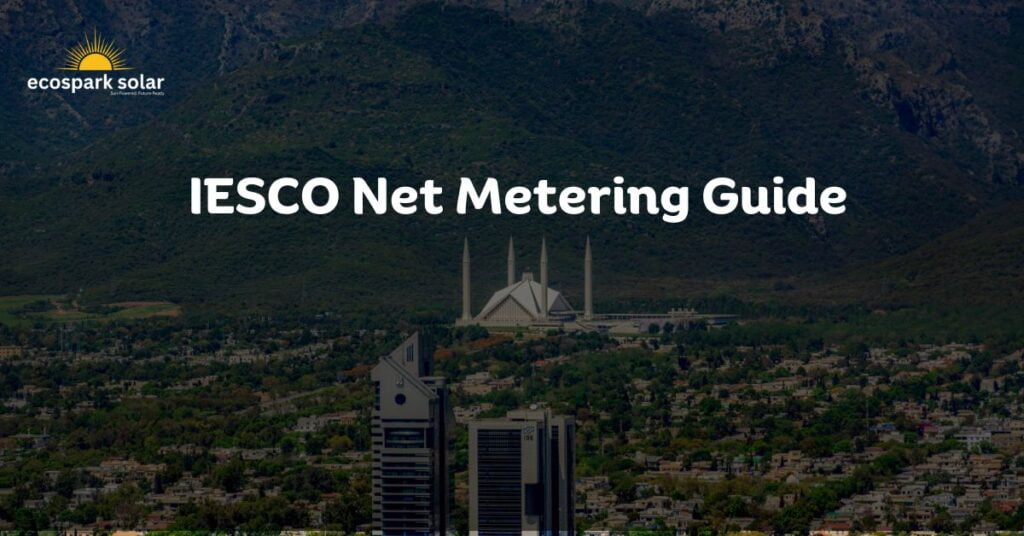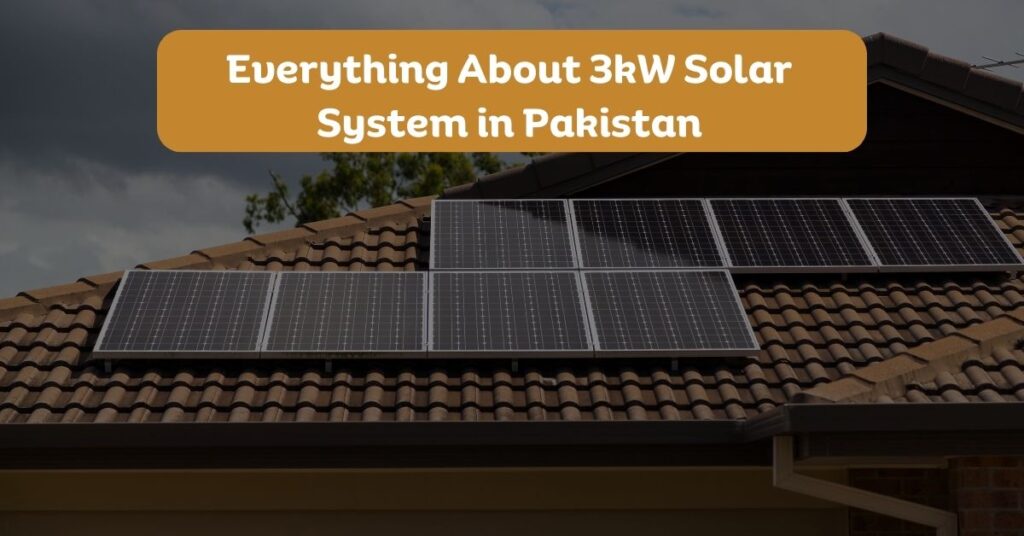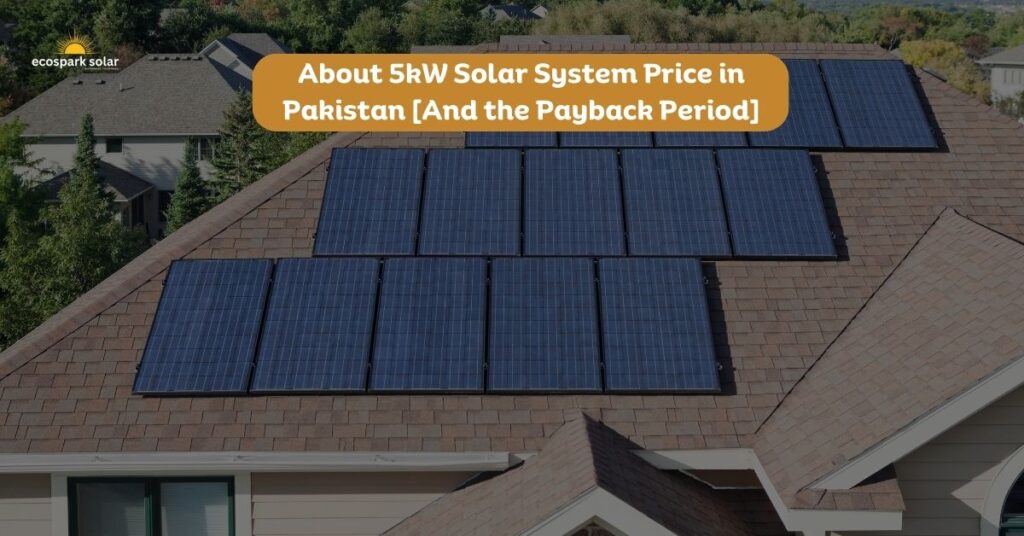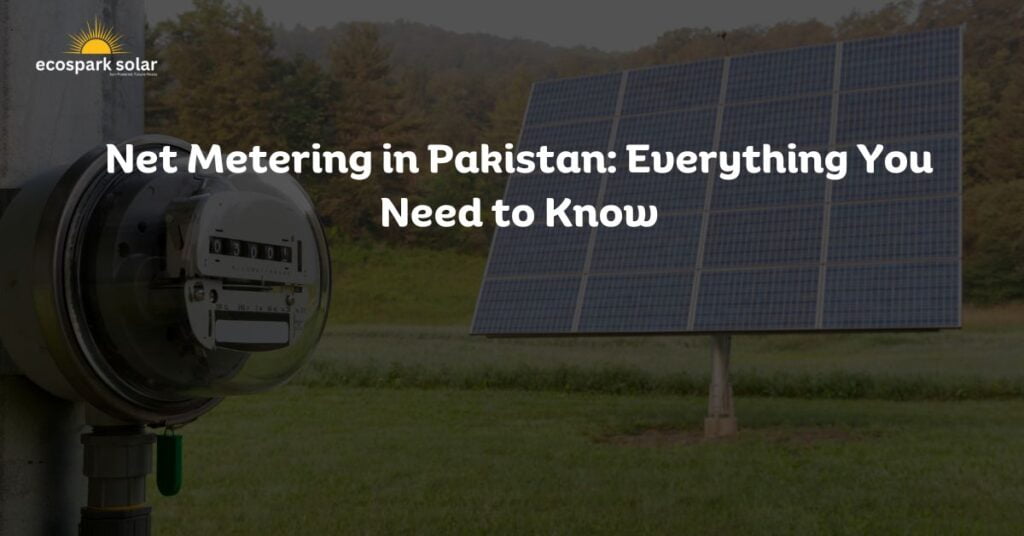Rawalpindi and Islamabad, two of the most important commercial hubs in Pakistan, are vibrant cities pulsating with economic activity. With a thriving mix of industries, bustling marketplaces, and a growing IT and tech sector, the energy demands of these cities have skyrocketed in recent years. This is putting strain on the conventional power grid. However, amidst these challenges, a revolutionary system known as net metering has emerged, providing a glimmer of hope for an energy-efficient Islamabad—and Rawalpindi.
What is net metering, and how does it work for areas under Islamabad Electric Supply Company (IESCO)? That we will discuss in this article.
Specifically, we will cover:
- What is net metering?
- IESCO net metering program
- Eligibility criteria of IESCO net metering
- IESCO net metering rates
- How does net metering affect the solar payback period in Rawalpindi/Islamabad?
Understanding Net Metering in the Context of Islamabad Rawalpindi
Net metering is a billing mechanism that allows consumers to generate their own electricity using solar power and seamlessly integrate it with the conventional power grid. Under net metering, individuals, businesses, and institutions install solar panels to produce electricity. Any excess energy generated beyond their own consumption is fed back into the grid, effectively spinning their electricity meters backward, earning them credits.
In the context of Islamabad and Rawalpindi, where ample sunshine is available throughout the year, net metering holds exceptional potential. These cities are well-suited for solar power generation, and net metering allows residents and businesses to harness this renewable resource effectively. By installing solar panels and participating in net metering, individuals and businesses in Islamabad and Rawalpindi can generate their own clean energy, offset their electricity consumption, and even earn credits or payments for surplus energy fed back into the grid.
This not only reduces energy costs but also contributes to a sustainable and environment-friendly energy landscape in the region, aligning with global efforts to combat climate change and promote renewable energy adoption.
Coming to the main question, how does net metering work in Islamabad? Let’s give you an overview of that. Before that, if you want to have a general understanding of net metering in, read our detailed guide to net metering in Pakistan. You can also explore our discussion on net metering rates in Pakistan by clicking on the link.
IESCO’s Net Metering Program
Under the regulatory framework set by the National Electric Power Regulatory Authority (NEPRA) in accordance with the 2015 Net Metering Policy, the Islamabad Electric Supply Company (IESCO) implements and facilitates the net metering program in Islamabad and Rawalpindi. This program empowers consumers to become active participants in the generation of renewable energy and promotes the adoption of sustainable practices. In the lines below, we will discuss all that you need to know about IESCO net metering program.
A solar system for everyone.
We’re customer-centric; we will find you a solution within your budget. Whatever your project size, you can always save with Ecospark Solar.
IESCO Net Metering Eligibility
To participate in IESCO’s net metering program, consumers must meet certain eligibility criteria. This includes residential, commercial, and industrial consumers who intend to generate electricity from renewable energy sources such as solar or wind.
- Eligible consumers must have a valid connection with IESCO and conform to the technical requirements outlined by NEPRA.
- They must have a 3-phase connection.
- The consumer must own the solar system. Long-term lease is also covered.
- Only systems between 1kW and 1MW are eligible for net metering.
- The solar system must be complete in all respects. Just installing solar panels won’t work—there must be right-sized inverters, as the grid uses AC electricity.
Application Process for Net Metering in Islamabad/Rawalpindi
The application process for IESCO’s net metering program is designed to be user-friendly and efficient. Consumers interested in participating in net metering must follow a step-by-step procedure outlined by IESCO.
This typically involves submitting an application form, along with the required documentation and technical specifications of the proposed solar power system. Once the appropriately filled application is received, a team of IESCO conducts the necessary inspections and evaluations to ensure compliance with safety and technical standards.
Upon approval, the consumer is granted permission to install the net metering system and commence the generation of renewable energy. The process typically takes a month.
Note, however, that consumers cannot apply themselves. Per the policy, only solar installers accredited by the Alternative Energy Development Board (AEDB) can apply on consumers’ behalf to get the license.
IESCO Net Metering Rates
Currently, as per the NEPRA policy, the net metering tariff stands at Rs. 19.32/kWh. The net metering rates established by NEPRA provide consumers with incentives for their participation in the program. These rates determine the monetary value assigned to the excess energy generated and fed back into the grid.
The specific rates are set in accordance with NEPRA’s regulations and may vary based on factors such as the type of consumer (residential, commercial, or industrial) and the prevailing market conditions. By offering fair and transparent rates, IESCO encourages consumers to invest in renewable energy systems and maximize their financial benefits through net metering.
How Are Consumers Compensated for Excess Electricity by IESCO?
Okay, so you generated extra electricity one month. What then?
Well, IESCO will give you energy credits, which they will carry forward to the next month’s bill. Next month, if you consumed more than you produced, these credits will be adjusted there. However, if you again produced more, the credits will be rolled forward to the next month again. After three months, you will have two options:
- Roll forward the credit for another 3 months—or more, depending upon your goals.
- Get paid. IESCO will pay after some formalities.
Net Metering in Islamabad/Rawalpindi: Concluding Thoughts
IESCO Net metering is an incredible program that can bring your electricity bill to virtually zero. In fact, if your system is a bit large than your needs, you can actually get paid for the extra electricity your system generates. If you can afford a solar system of decent size, it is going to be a game-changer for you and the way you consume energy!



